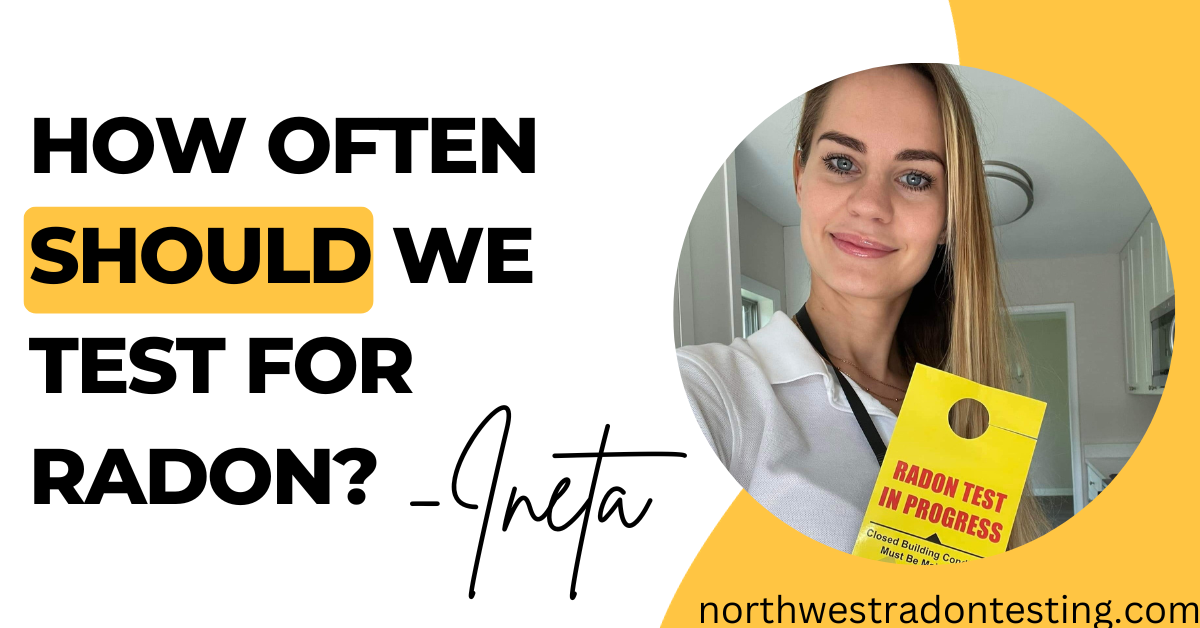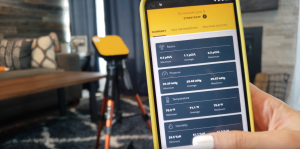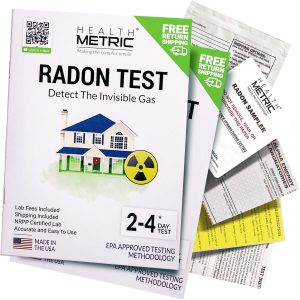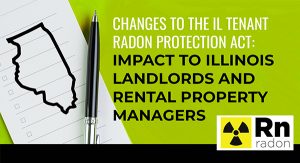
Are you regular testing radon in Illinois? Ensuring the safety of your home and loved ones is paramount, especially when it comes to potential threats like radon. This blog post, informed by the guidelines from the Illinois Emergency Management Agency (IEMA), aims to provide Illinois homeowners with crucial insights on the optimal frequency for measuring radon. By following these recommendations, you can take proactive steps towards maintaining a healthy living environment. Read more here: https://iemaohs.illinois.gov/content/dam/soi/en/web/iemaohs/nrs/radon/documents/guidelinesforhomemeas.pdf
Unveiling the Radon Menace:
Radon, a naturally occurring radioactive gas, can seep into homes from the ground, posing health risks with prolonged exposure. Illinois, with its diverse geological makeup, is an area where radon testing is particularly significant.
Key Guidelines from IEMA:
The Illinois Emergency Management Agency offers comprehensive guidelines for radon testing in homes. Let’s delve into the recommended frequency for measuring radon:
Initial Measurement/Regular Radon Testing:
New Homeowners:
- If you’re moving into a new residence in Illinois, IEMA recommends initiating radon testing. This initial test establishes a baseline measurement, providing valuable insights into the existing radon levels in your home.
Regular Measurement With An active Radon Mitigation System:
Every Two Years:
- IEMA suggests that homeowners in Illinois, as a proactive measure, should measure radon levels every two years. Regular measurements provide consistent checks, enabling the timely implementation of mitigation efforts if necessary.
Every Five Years For Home Owners Without A Radon System.
Changing seasons
Radon levels change from season to season as the soil around your home grows drier or wetter. If your last test was clear, try taking the next scheduled radon test during a different season. Instead of waiting a full two years to test again in the spring, try testing a few months early so you can measure radon levels in the winter.
Moving to a lower floor
Any time you plan to move onto an unoccupied floor of your home, especially basements and partially buried ground floors, you’ll want to run a new radon test on the occupied space. Complete your radon tests before moving into a basement area, even if that means delaying your use of the space for a few months.
Renovations
Major renovations of your home, especially if they involve structural changes or foundation repairs, can trigger the release of radon. Painting the walls or changing carpet above the second floor may not matter, but finishing your basement or adjustments to your HVAC system should definitely require a fresh radon test.
Additional Measurements:
Instances Warranting Extra Tests:
- Post-Renovations or Structural Changes: Significant alterations to your home’s structure may impact radon levels, necessitating immediate retesting.
- Following Natural Disasters: Seismic activities or floods can disturb the ground, potentially altering radon entry points. After such events, it’s crucial to reevaluate radon levels.
- Health Concerns: If there are new occupants, especially those susceptible to respiratory issues, additional measurements are recommended to ensure a safe living environment.
Choosing the Right Measurement Method:
Selecting the appropriate measurement method is crucial for accurate results. Illinois homeowners can opt for short-term or long-term measurement kits. Short-term tests provide a quick snapshot, while long-term tests offer a more comprehensive understanding over an extended period.
Conclusion:
In Illinois, understanding how often to conduct regular radon testing is not just a precaution but a proactive step towards securing your family’s well-being. Following the IEMA guidelines allows you to establish a routine that prioritizes safety and adapts to changes in your home environment. For professional radon testing services in Illinois, trust Northwest Radon Testing. We are committed to providing accurate results and helping you maintain a safe and healthy home.

Find out more by contacting us:




